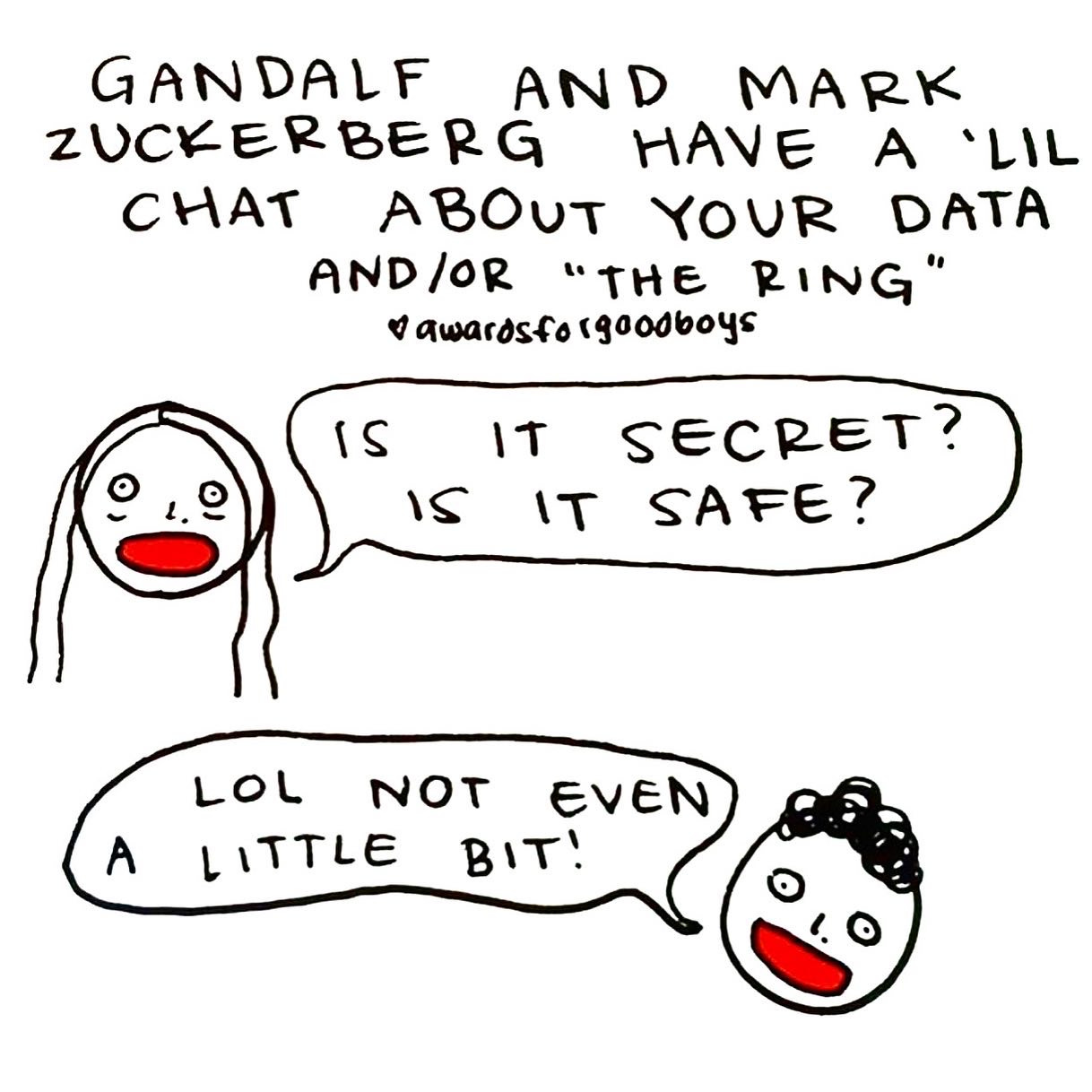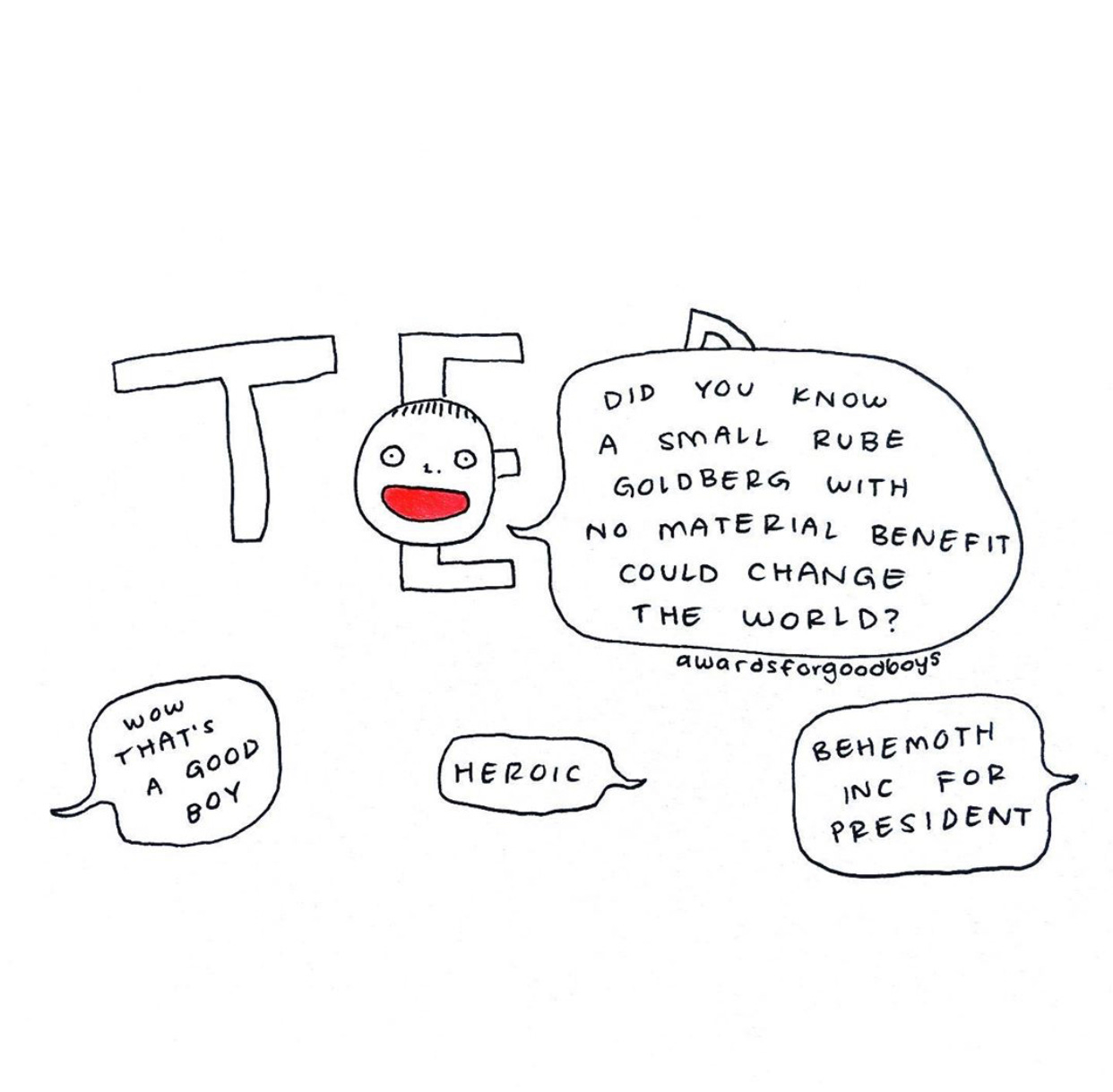Approximately 1,000 years ago, in 2020, I wrote about conspiracy theories: the shifting definition of them, their importance in modern life, how easy it is to scoff at people who have gone off the deep end, and how easy it is for them to scoff right back at you.
QAnon and The New Dark Age
“The term ‘conspiracy theory’ has more to do with the relation of power, than that of people to truth.” - James Bridle
Our world is confusing, fractured, and immensely fucked up. We want, nay need, structures to help us make sense of the incomprehensible. For as long as…time…(put in some Gregorian chanting here) we have used story–narrative– to shape our reality, to make things make sense. But the nature of the story is changing, as are the methods used to amplify those stories. When everything becomes narrative, everyone becomes a storyteller, even when they shouldn’t be. As our traditional avenues of information break, so too does narrative: if everyone has a microphone, who are we supposed to believe?
When the “real factors” involved in any given problem are nuanced, multilayered, or not immediately digestible, the staying power of narrative wanes. Complexity, rationality, calmness: these do not make a good meme or TikTok video. Algorithms (helmed by men who paid handsomely to be in the pocket of our new president) are the highway by which narrative now arrives, and the express lane is reserved for the most outlandish, the most conspiratorial, the least comprehensible. Simplifications of stories go viral and quickly disappear, mistakes go uncorrected. Whomever can spin the best overarching story the fastest often becomes the most viable orator for their movement. These narratives come from a range of people inexorably vast; some have a few hundred followers, some a YouTube empire that mashes up Hunger Games with FEMA, and some an elected mandate.
As I emphasized in my earlier piece “QAnon and The New Dark Ages”,—looking specifically to the work of James Bridle—conspiracy often points to a wrongness that is real and palpable. When the narrative used to explain the wrongness obfuscates (intentionally or not) the tangible factors involved is when the confusion settles into the miasmic fug of conspiracy. Naomi Klein writes about conspiracy and attendant phenomena at length in her book Doppelganger: A Trip Into the Mirror World: “And because the system is rigged, and most people are indeed getting screwed – but without a firm understanding of capitalism’s drive to find new profit sources to enclose and extract, many will imagine there is a cabal of uniquely nefarious individuals pulling the strings.” (It would be easy to see Trump and Co. as uniquely nefarious individuals – and they are, surely, a new flavor. But we’ve seen it before, and seeing them as unique villains undermines the willingness of the Democratic party to let this happen.) I also wrote back then that it seemed conspiracy theories were creeping into the mainstream. The “mainstream” and conspiracy are now thoroughly intertwined, and pushed as essential narrative by some of the stupidest and richest people we have in power (and who were voted into power in large part because of that intentional obfuscation of truth) and who parrot conspiracy to sow further confusion, and deflect/deny their own responsibility. “Conspiracy theories, as we have seen, are both symptoms of confusions and powerlessness and tools of division and distraction that benefit elites,” Klein writes.
Trump and team are morons, but they’re really good at narrative, and experts at conspiratorial thinking. Truth has become a figment. Truth Social is an app our Crypto loving President had built for himself because of “free speech,” before going on to ban words that offend his sensibilities. And playing the victim, even as a very rich and powerful man, is aided by the immense chaos of simply existing in the world and trying to figure out what the hell is going on. Klein writes of trying to get information online: “Many news sites aren’t about news; they’re about tricking us into clicking on autoplaying ads and advertorials that eat up the bottom half of nearly every site. Nothing is as it seems. This kind of predatory, extractive capitalism necessarily breeds mistrust and paranoia. In this context, it’s not surprising that QAnon, a conspiracy that tells of elites harvesting the young for their lifeblood (adrenochrome) has gone viral.”
What we see is always mediated: by the news (see above for contradictions), by our own biases, by social media, by AI deep fakes and viral infographics made by 19-year-olds. As we become more tethered to the internet, the glut of information makes it harder to discern who to listen to, what is happening, and what matters. This is not a bug, it is a feature.
In the last few weeks, drones over New Jersey came to mean everything from imminent UFO disclosure to China spying on us, to the U.S. spying on us, to drone fanatics coordinating light shows. We see a thing, we don’t get an easy answer as to why, and narrative fills the void. But when things are clear, they still aren't seen. (Klein writes extensively about this in the last chapter of her book, using China Mieville’s The City & The City to explain the phenomena of unseeing, particularly on occupied land.) We see and we deliberately unsee: thousands of horrifying images of the genocide in Palestine, aided by U.S. arms and money and robust bipartisan support, are purposefully unseen. Instead, endless obfuscation. Take the ADL, who continue to tweak the definition for anti-semitism to make dissent increasingly difficult, and to funnel money into elected officials who support the ethnostate as it aligns with their own authoritarian vision: this is a deliberate attempt by an organization working for a foreign government to suppress us. To undermine protest, free speech, and liken all legitimate and necessary intervention as anti-semitism. Using conspiracy, these organizations can continue to misdirect from ongoing genocide, pushing propaganda on such a scale and with such coordination they start to double themselves and invert the narrative: the IDF is now tweeting, Israel is a bastion of queer rights, Elon didn’t do a Sieg Hiel. What you are seeing is not what is happening, what is happening must be ignored at all costs.
Looking for someone to blame after a tragedy is only natural. I’m watching it unfold here in Los Angeles as everyone tries to figure out who to blame for the fires, even though they are but a symptom of an ecological reality wholly ignored by those in power over the last 75 years.
On Wednesday a helicopter and a commercial plane crashed into each other outside of Washington D.C., killing everyone on board. Trump blamed diversity hires. It’s so unbelievably deranged that it effectively shifts the narrative. The river is still being sifted through for bodies and yet the story is no longer about the tragedy, about the lives lost, but about an inane crusade to find a new (marginalized, oldest trick in the book) scapegoat. Klein writes at length about how hard it is to find ways to communicate with and against these tides of ideas: part of the problem is that when combatting something so out of pocket, denying it necessarily means repeating it. Even in trying to rewrite a false narrative, one must concede to the dominant one, addressing it and legitimizing it, thereby inviting a Streisand effect that continues to feed into itself.
As is true of many conspiracy spawning events, something did, very obviously, go very wrong. This is not supposed to happen. But there is no longer an ecosystem in which to grieve and wait for answers: we don’t really grieve, we post, we launch ideas, we spiral.
The official word is that the investigation is still ongoing. That doesn’t mean people aren’t going to run away with their own version. While two of the Army individuals killed have been identified, the third was a woman whose name is being withheld at the request of her family, per NPR. Are we surprised that a trans pilot was blamed in the interim and had to post “proof of life” to show she was not involved in the crash? Or that conspiracy continues to be bipartisan? In the second tweet, we see people speculating that perhaps it was a hit job because there were Russians on board. Whatever “actually happened” with this tragedy, it is probably not because of whatever randoms on X the Everything App or Trump is saying, but a combination of human error and people not being paid enough to do their jobs. This should be something to unite around so it doesn’t happen again. But it will splinter, refract, and reappear as having happened for a thousand different reasons, each more misdirected than the last.
Leaving you with this quote from Klein:
“The shift to confronting and reimagining structures requires something else: a recognition that this work is not something we can do on our own, as individuals, with a charity donation or an equity and diversity training, or a performance of virtue on social media. Indeed, a central reason so many of us cannot bear to look at the Shadow Lands is that we live in a culture that tells us to fix massive crises on our own, through self improvement. Support labor rights by ordering from a different store. End racism by battling your personal white fragility - or by representing your marginalized identity group in elite spaces. Solve climate change with an electric car. Transcend your ego with a meditation app.”
She goes on to note that some of this sure, might help a little bit, but not really. It’s not the point, and it’s not enough. The emphasis on individualism, especially as a solution to structural crises, will never work. The endless tinkering to improve the self so that our best self can solve the problem is itself a conspiracy (see: Silicon Valley) to distract you from connecting with other people. To keep us dredged in myopia. We are offered endless ways to track ourselves, to quantify, to use apps that promise us connection but are structurally built to divide us, to instill fear, to reward outlandishness. We cannot optimize ourselves into a better reality. We cannot concoct a myth–a narrative—of the self that releases us from living in this hell together, that eases the weight of living in a country that does these things, to the world, to its citizens. We can blame the downfall on a handful of billionaires, but we can’t look for their “good” versions to save us.








